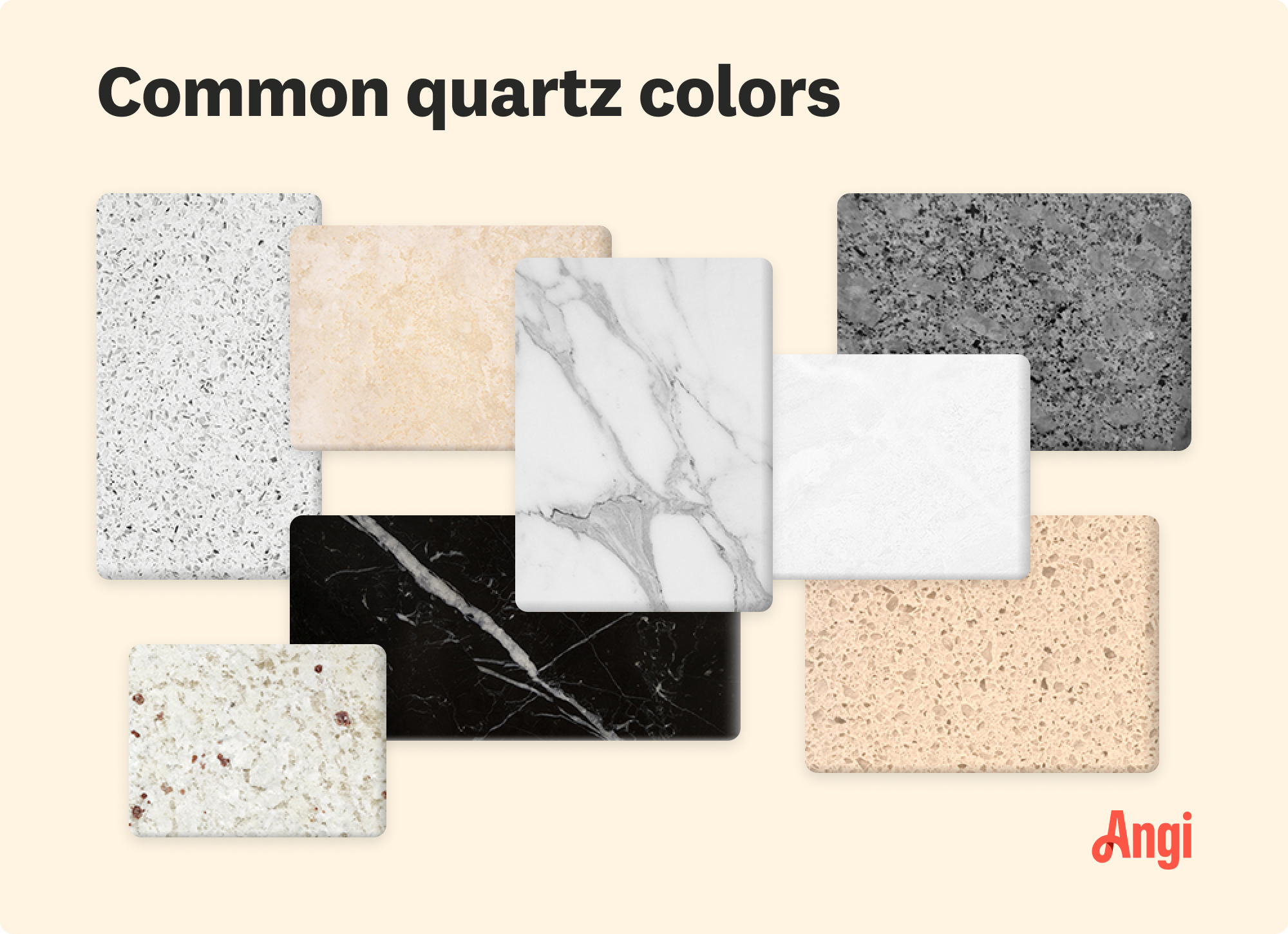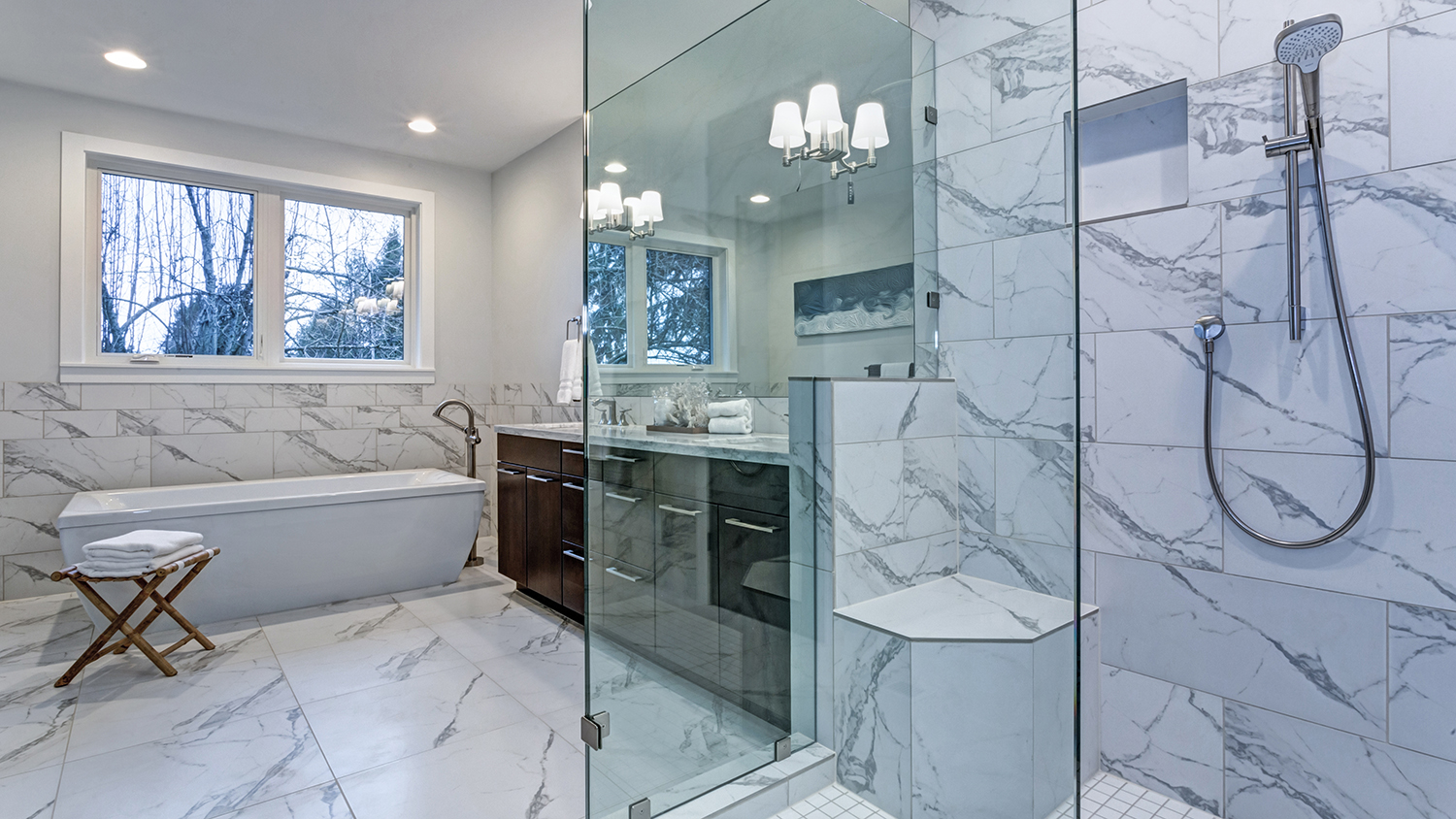
Are you getting close to deciding on Caesarstone® countertops for your home? Discover all the details behind Caesarstone® countertop costs in this guide.
Can you count on white quartz countertops?


White quartz countertops are durable, stain-resistant, attractive, and low maintenance.
However, they are also expensive, can be damaged by heat, are difficult to install, and are not intended for outdoor use.
Other white countertop options include laminate, marble, granite, quartzite, and porcelain.
White quartz costs an average of $50 to $80 per square foot.
A bright white kitchen looks airy and inviting, especially in a small space. White quartz countertops can complement your kitchen’s aesthetic, but are they worth the price? Explore the pros and cons of white quartz countertops to decide if they’re right for you.

Quartz is an engineered stone countertop made by combining ground quartz minerals with resins, polymers, and pigments and pressing the mixture into slabs. The manufacturer uses white pigments with gray veining to make white quartz, resulting in a similar appearance to white marble.
| Pros | Cons |
|---|---|
| Durable | Expensive |
| Stain-resistant | Vulnerable to heat |
| Low maintenance | Not suitable for outdoor use |
| Attractive | Difficult to install |

Let’s explore the most significant advantages of installing white quartz countertops in your kitchen.
Quartz is highly durable and scores a seven out of 10 on the Mohs Hardness Scale (for comparison, diamond scores a 10). This durability makes it an excellent choice for kitchen countertops, which must stand up to daily chopping, cooking, and cleaning. White quartz countertops are water-resistant and difficult to damage.
Because quartz is an engineered material, it’s naturally nonporous and resistant to staining. Even spilling a dark-colored liquid like coffee or red wine won’t leave a stain; simply wipe it up, and you’ll forget it ever happened.
Unlike solid stone countertops, quartz will never need to be sealed. It’s also easy to clean with a microfiber cloth; no scrubbing required. You won’t need to worry about bacteria or mold growth—simply disinfect the countertop after use to eliminate germs from raw meat or other foods.
White quartz countertops are bright, clean, and attractive in any kitchen. They can be plain white or include gray veins to resemble marble. Whether you want an all-white kitchen or prefer pairing white countertops with a vivid wall or backsplash color, white quartz is an excellent pick.

Although white quartz countertops have many benefits, they also have several drawbacks to bear in mind.
Quartz countertops are low-maintenance and durable, but they’re also more expensive than many other countertop types. Quartz countertops cost $1,500 to $8,000, with an average price of $4,500. In contrast, laminate countertops cost an average of $1,250, and granite countertops cost an average of $3,250.
Quartz countertops don’t handle heat well. You must use hot pads and trivets under hot pans to protect them from damage. If you set a hot pan down, it can cause permanent discoloration—and since the countertop is white, the mark will be noticeable.
If you’re installing an outdoor kitchen or bar area, quartz won’t work. When exposed to UV light, quartz countertops can turn an unattractive shade of yellow. And with white quartz, that discoloration will be highly evident. Materials like natural stone and tile are better suited for outdoor use.
Quartz is a heavy countertop material that is unsuitable for DIY installation. Trying to save money by tackling this project yourself can result in damage to the surface that costs more to repair than you saved on labor. A local quartz countertop installation company will ensure that your white quartz countertops are installed correctly and safely the first time.

White quartz isn’t the only neutral countertop option out there. If you like the look of white quartz but aren’t sure it’s the right material for your space, consider these alternatives:
Laminate
Granite
Solid surface (also known as Corian®)
Porcelain
Concrete
Sintered stone
Marble
Quartzite
Recycled glass
Resin
Remember that the cost of installing countertops varies greatly depending on the material you choose. For example, while quartz countertops average $4,500, Corian countertops cost $3,950, and laminate countertops average $1,245.
Quartz and granite are among the most popular countertop materials for homeowners. According to the responses of 8,100 Angi customers, 29.3% of homeowners requested quartz countertops, while 44.6% opted for granite, making it the more commonly chosen option. This reflects the strong demand for durable, stylish surfaces that can enhance both the look and functionality of a kitchen.
White quartz countertops are a timeless choice for anyone who wants a low-maintenance countertop material that will stay bright and clean without needing regular sealing. Any white or light-colored countertop can complement a kitchen’s color scheme, but quartz is a solid choice because of its durability and stain resistance.
From average costs to expert advice, get all the answers you need to get your job done.

Are you getting close to deciding on Caesarstone® countertops for your home? Discover all the details behind Caesarstone® countertop costs in this guide.

The cost of soapstone countertops varies primarily based on the size of the installation area, the color of the stone, and the type of edging.

Marble countertops have yet to go out of style, and likely won't any time soon. This strong, durable, and stunning material melds with most kitchen, bathroom, and even dining room designs. But how much do marble countertops cost to install?

Are you weighing engineered stone vs. natural stone countertops? Both offer many of the same benefits, but there are differences in price, durability, and appearance.

Choosing a countertop material is a big decision. We break down the pros and cons of marble vs. granite countertops to help you decide.

Discover the true cultured marble cost for your next project. Learn about installation, size, labor, and ways to save on cultured marble.